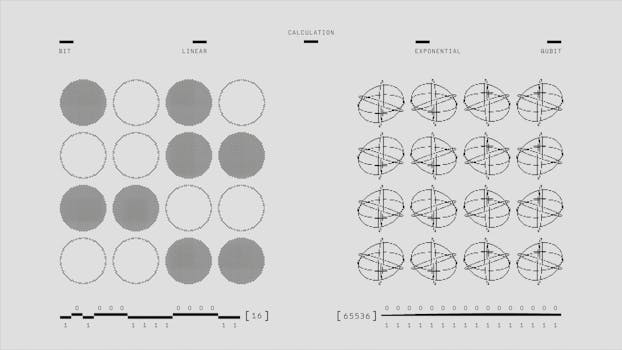
Introduction to Quantum Mechanics

Understanding quantum mechanics is essential for grasping the fundamental principles that govern the universe. Quantum mechanics challenges our classical notions of reality, introducing concepts that are both perplexing and enlightening. At its core, quantum mechanics deals with the behavior of particles at the smallest scales, where traditional physics fails to provide clear answers.
The Basics of Quantum Theory

Quantum theory emerged in the early 20th century, revolutionizing our understanding of matter and energy. Unlike classical mechanics, which relies on predictable laws, quantum mechanics reveals a world of probabilities. For instance, particles can exist in multiple states simultaneously, a phenomenon known as superposition. This fundamental principle is pivotal in understanding how quantum mechanics departs from classical views.
Key Principles of Quantum Mechanics

One of the most significant principles of quantum mechanics is the uncertainty principle, formulated by Werner Heisenberg. This principle states that certain pairs of physical properties, like position and momentum, cannot be simultaneously measured with arbitrary precision. This inherent uncertainty has profound implications for our understanding of reality, suggesting that at a fundamental level, the universe is not as deterministic as previously thought.
The Implications for Reality

The implications of quantum mechanics extend far beyond the realm of physics. The idea that particles can exist in multiple states challenges our perception of reality itself. If reality is not fixed and can be influenced by observation, what does this mean for our understanding of consciousness and existence? The observer effect, where the act of measurement alters the state of a system, further complicates our grasp of reality.
Quantum Mechanics and Technology

Quantum mechanics is not just a theoretical framework; it has led to practical applications that are reshaping technology. Quantum computing, for example, leverages the principles of superposition and entanglement to process information at unprecedented speeds. This technology holds the potential to solve complex problems that are currently intractable, fundamentally altering fields such as cryptography, medicine, and artificial intelligence.
Conclusion

In conclusion, understanding quantum mechanics provides insight into the nature of reality and our place within it. The principles of quantum mechanics challenge our traditional views and open up new avenues for exploration, both in science and philosophy. As we continue to unravel the mysteries of the quantum world, we may find that our understanding of reality is more complex and interconnected than we ever imagined.






